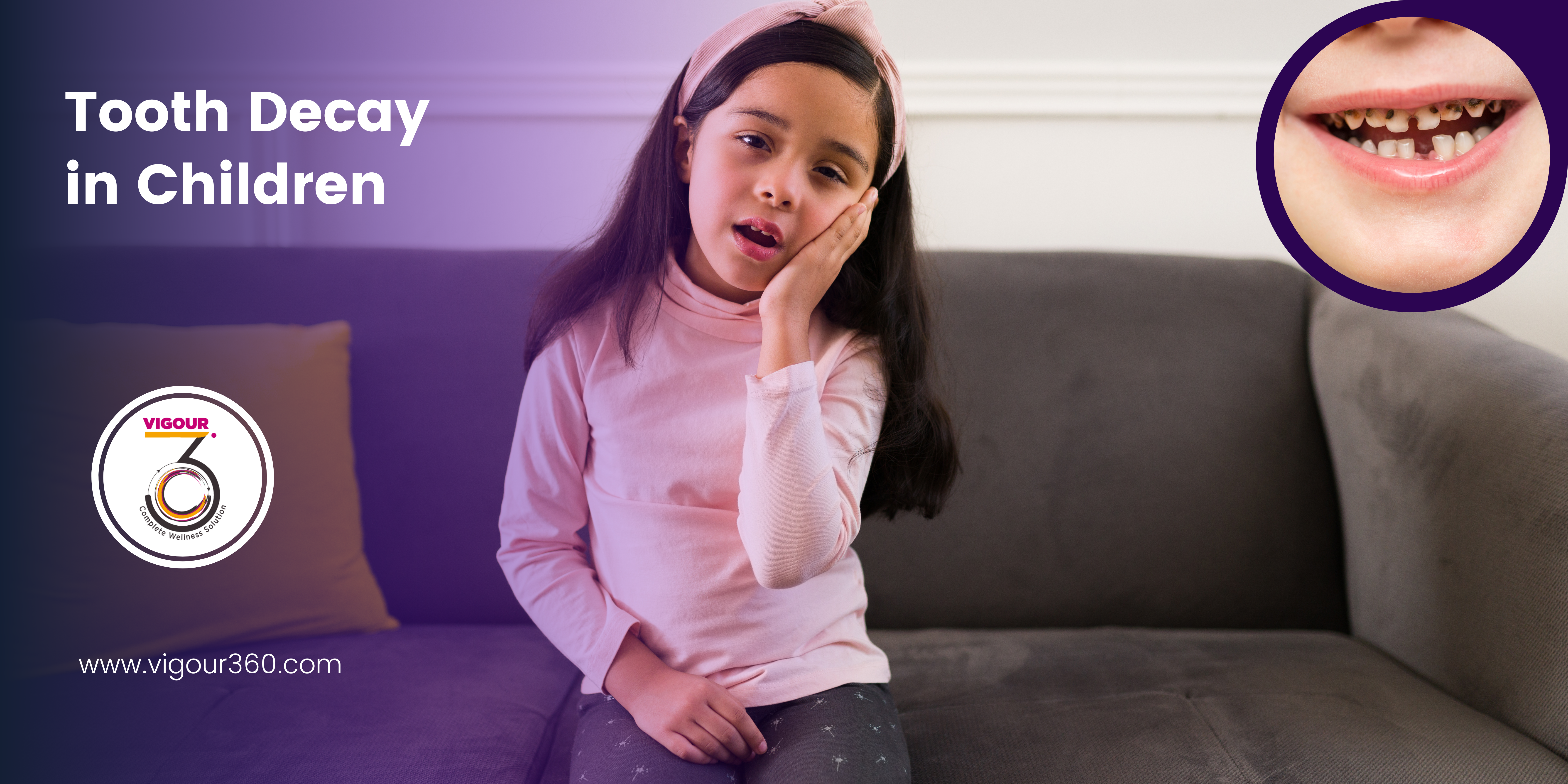
Tooth decay is the most common chronic disease in children as well as adults, despite it is highly preventable. With regular dental checkups and good oral hygiene practices, dental caries can be controlled.
If left untreated, dental problems can hamper a child’s eating, speaking and learning. It compromises their nutrition and growth. Kids tend to miss school and it takes a toll on their academics. School dental check-ups significantly catch unnoticed dental problems in children.
Let’s explore factors affecting tooth decay and measures to avoid the development of decay in childhood.
Food particles attach to tooth surfaces, and bacteria from the mouth grow on sugary substances in food. These bacteria produce acid, which dissolves the outer layer of the tooth (enamel).
Saliva helps to cleanse and repair tooth damage caused by bacteria. But repeated bacterial attacks can form a hole in the tooth – also called a cavity. It further deepens and spreads to the inner layers of teeth.
As we know, kids with milk teeth are more susceptible to tooth decay.
The milk teeth are smaller in size and contain a thin layer of enamel- the outermost covering of the tooth.
.png)
The enamel the hard outer layer is softer and thinner in milk teeth, putting it at a high risk of decay.
Kids often tend to eat food, due to which food particles remain in the mouth. On this continuous source of food, bacteria thrive leading to cavities.
Nowadays, due to the increase in the consumption of sugary and junk food, the tendency to tooth decay is further increased. Candies, Donuts, Mayonnaise, and Cheese adhere to the tooth surface and help bacteria grow.
Due lack of awareness, improper brushing techniques, and dependency on parents; kids cannot maintain good oral hygiene. It causes cavities and infection from an early age.
There exists a common misconception that these temporary teeth can be neglected since they will eventually be replaced by permanent ones.
However, it's important to note that milk teeth typically remain in a child's mouth until the age of 13-14 years and begin to naturally fall out around 7-8 years of age.
Therefore, maintaining proper oral hygiene for these primary teeth is essential for ensuring a healthy permanent dentition. The period up to the age of 13-14 represents an optimal window for fostering a sound dental foundation. Milk teeth play an important role in a child’s growth and development. It helps children in speaking and eating.
One primary factor to consider is the use of a milk bottle, which can lead to a condition known as Nursing Bottle Caries. This condition can have a detrimental impact on a child's overall dental health due to the continuous presence of milk residue on their teeth.
Furthermore, it can affect a child's facial appearance and their ability to chew properly.
To prevent this, parents should avoid using milk bottles at night, and children must brush their teeth before bedtime.
In addition to these measures, regular dental checkups play a pivotal role in maintaining the oral health of children.
Kids should brush their teeth twice daily. For children under the age of 7 years, parents should guide or help in the oral hygiene routine.
Limit sugary beverages and junk food. Eat more fibrous foods like fruits and vegetables that will aid in self-cleansing. Adequate water intake will flush away the bacteria from tooth surfaces.
Dental checkups at the ages of 1 year, 4 years and 7 years are important for children. Apart from that, annual dental checkups are crucial to spot early signs of decay or cavities. With timely intervention, we can prevent pain, and swelling and; consequently, complicated dental procedures in kids.
The Vigour360 school health program offers advanced dental checkups for children from nursery to high school. It provides comprehensive insights into the dental status of your child. This proactive approach can help to prevent the need for cumbersome and costly dental procedures in children. Learn more.
Comments (0)